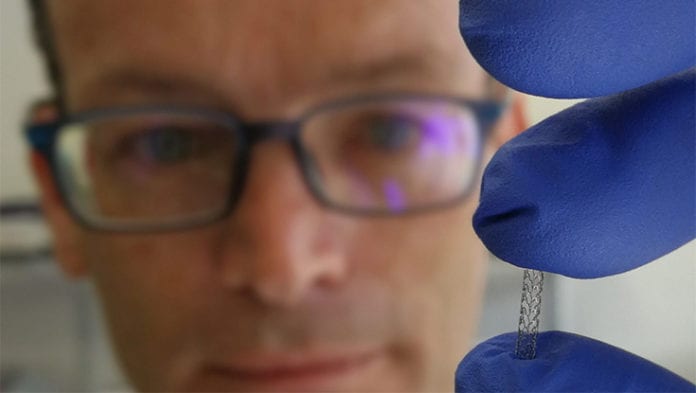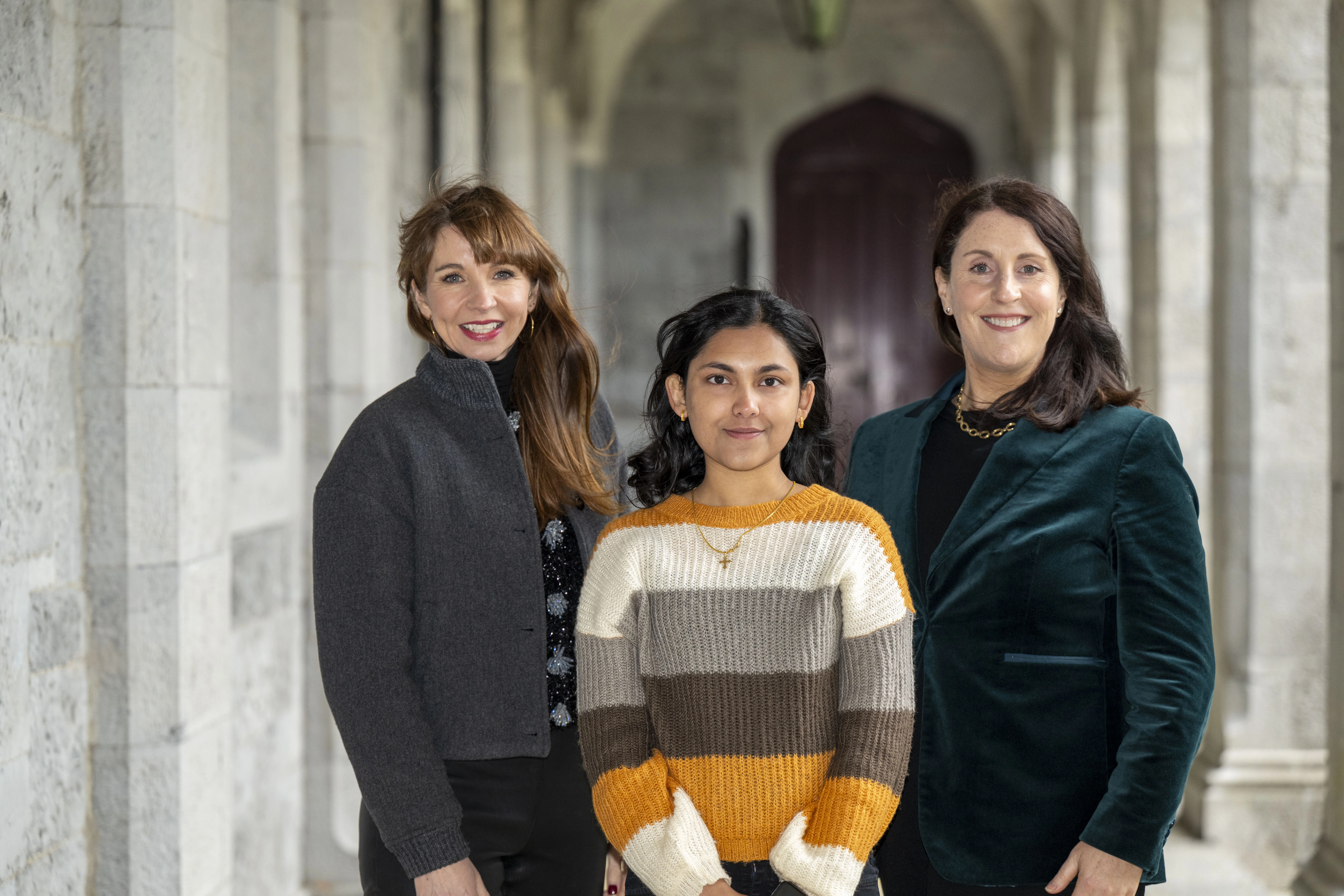A scientist at NUI Galway has developed a new state of the art cardiovascular stent bioengineered to avoid triggering the body’s immune system.
Prof Gerard Wall, microbiologist and research at the CÚRAM medical devices centre has created a new variety of stent coated in antibodies to help incorporate it into the bloodstream.
For this delicate process antibodies are isolated in the laboratory at NUIG using a genetic engineering approach that mimics the human immune system.
They are tethered onto the lattice of the stent using e-coli bacteria under sterile conditions.
This stent is the first of its kind to use human antibodies for cell capture, to avoid activating the patient’s immune response.
Stents are a medical device used to reopen arteries that have become clogged or completely blocked off by coronary disease.
Coronary disease can cause arteries to become hardened and narrowed due to a build up of plaque on their inner walls, reducing blood flow to the heart and around the body.
This is the most common cause of death in Europe, resulting in approximately two million deaths each year.
Professor Wall said that this breakthrough has been the work of many stent manufacturers, protein engineers and interventional cardiologists.
He added that preclinical studies showed great promise and it is now under development by the manufacturer in Poland with a view towards reducing the need for repeat surgeries.
While surgical insertion of stents to re-open arteries is now commonplace, arteries can become re-blocked over time when new tissue grows over the stent.
This new stent design addresses this issue by using the antibody coating to capture endothelial cells from the patient’s blood and the surrounding artery.
This camouflages the stent within the walls of the native blood vessels to avoid rejection by the patient’s immune system while the steel structure provides the mechanical strength necessary to keep the artery open.
Professor Abhay Pandit, Scientific Director at CÚRAM said that all the research they undertake is to address a critical patient need that is going unaddressed.
“By partnering with leading research institutions in Europe, this unique team brought together a critical skill set to design and produce a real solution that will have a very significant impact for those who urgently need it”














